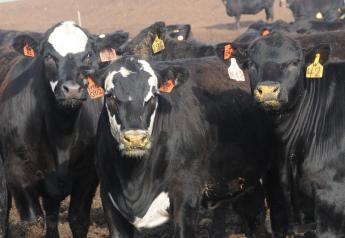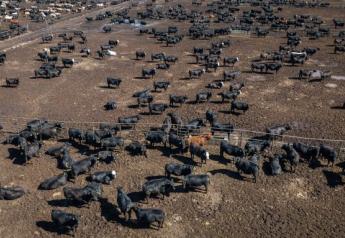Dakotas Rancher Relief Fund Accepting Applications

The North Dakota Stockmen's Association has begun accepting applications from ranchers seeking relief aid to help offset losses incurred during an early October blizzard.
The storm that hit with surprising intensity on Oct. 4-5 dumped up to 2 feet of snow in southwestern North Dakota. There is no official count of the number of dead cattle, but the Stockmen's Association believes the number is more than 1,000.
"It's still pretty fresh in our minds," said Julie Ellingson, executive vice president of the association. "Our hope is to be able to provide some help to those hardest hit."
The Stockmen's Association and the Stockmen's Foundation each contributed $10,000 to start a relief fund for affected ranchers. With other donations, the fund totals nearly $50,000, and donations are still being accepted.
Ranchers can apply for aid for themselves or for others. Application and nomination forms can be found at http://www.ndstockmen.org. The deadline for submissions is Jan. 31. The Stockmen's Association plans to disburse the money to producers early next year based on need.
The association also has contributed $10,000 to a relief fund for South Dakota ranchers, who lost between 15,000 and 30,000 livestock in the storm.
"Many ranch families were impacted by this incredibly destructive storm," said Towner, N.D., rancher Jason Zahn, who serves as president of the Stockmen's Association. "The Stockmen's Foundation wanted to reach out and provide support to producers on both sides of the border."
The South Dakota fund, which was set up by the state Stockgrowers Association, Cattlemen's Association and Sheep Growers Association, has surpassed $2 million. The fund being administered by the Black Hills Area Community Foundation began accepting assistance applications in mid-November, with a deadline of Dec. 31. Forms are available at http://www.RanchersRelief.org.
Ranchers in both states hurt by the storm have not received disaster aid from the federal government because Congress has not yet passed a new farm bill.
"It's going to bankrupt some operations," said Bob Fortune, who ranches near the South Dakota town of Belvidere.







